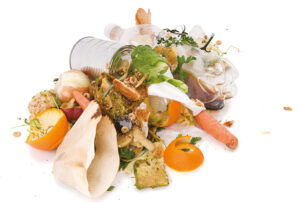Are England’s Care Homes Aware Of The Impending Food Waste Legislation?
By Huw Crampton, sales manager at organic waste solutions firm Tidy Planet (https://tidyplanet.co.uk/)
 The way care homes in England deal with their food waste is set to change in 2023, under the new UK Environment Act legislation.
The way care homes in England deal with their food waste is set to change in 2023, under the new UK Environment Act legislation.
Here, Huw Crampton, delves into what the new law means, how it will affect care homes, and how to be compliant.
Food waste disposal compliance is set to change for the sector
For many care homes in England, the daily food waste that’s generated on site is often disposed of together with general waste or the material is sent to sewer by a a digestion, waste-to-water system, or traditional macerator.
However, as of 2023, these practices will no longer be permitted, and this is something important the care sector needs to be aware of, in order to prepare ahead of the deadline.
Under the Government’s new legislation, it stipulates that not only will food waste need to be presented separately for collection – i.e., not mixed with general or other wastes – but that when it does leave the site, it should be sent for recycling or composting.
In essence, this valuable product should not be destined for landfill, where it omits harmful gases into the atmosphere, instead it should be harnessed for its true resource potential.
That means, if a care home’s food waste disposal practice includes any of the non-compliant methods, it will need to seek out and implement an alternative process, so that it avoids any penalties from the Government.
Ultimately, each care home will need to take a stance on the best solution for its own individual setting – whether that’s dewatering or drying its food waste to reduce the volume and weight before it’s collected, or even composting it on-site.
What are the environmental and financial benefits?
There is no denying that the shift in how care homes approach their food waste management will present its challenges – as is the case with all change. However, there is a wealth of opportunities for the sector to take advantage of too.
For instance, by decreasing the weight and volume of food waste – via dewatering or drying methods – this consequently lowers off-site disposal costs, helping to safeguard already stretched budgets from unexpected, inflated charges at the end of each month.
Additionality, with fewer waste collection vehicles needed, this also carries with it vast environmental benefits, such as a reduction in transport-related carbon emissions. As a result, this helps to create a greener, less polluted planet not only for present but future generations too.
If care homes want to go one step further and recycle their food waste on site, dewatering or drying equipment can be used in conjunction with an on-site, in-vessel composter too – creating a resource that can be used in any gardens or growing plots.
Of course, each individual care facility will have its own needs when it comes to selecting the most suitable solution, but it is important for all organisations to know the changes are coming, alongside how to best prepare for them.
Ultimately, England’s care sector may not yet be ready for the new laws, however, ‘yet’ is the key word here. There is still time to evaluate existing practices and implement new methods that are compliant, as well as support an improved level of environmental and financial sustainability.

